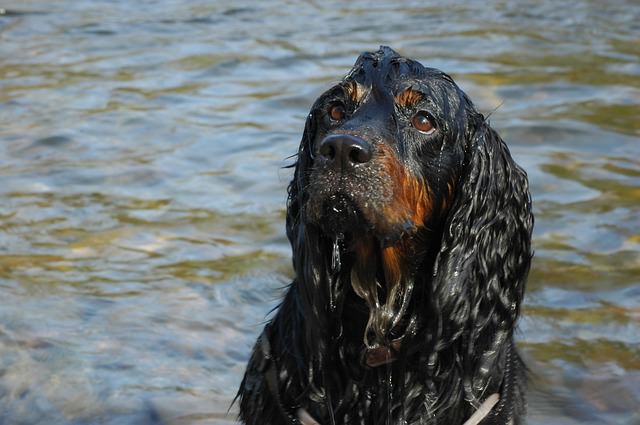Anyone who cuddles a dog knows that sometimes there are unpleasant aromas associated with them. We are all familiar with the terms “dog breath” and “smell like a dog.” Not all smells will be helped by bathing. Some of them come from actual health issues and it is important to know the difference because one needs a bath (or 3) and the others will require medical intervention.
Odors that will respond to bathing are things like rolling in stinky stuff which dogs love to do. These odors are usually fairly obvious because many times your dog will smell so foul that you know exactly the source. Dogs love to dig up dead things or garbage and roll on them. These odors are usually reduced by a thorough bath. Sometimes dogs will come across a skunk that does not take kindly to being investigated. Skunk odor can linger even after a bath. There are commercially available shampoos that seem to help, but you might smell the pungent skunk smell lingering on your dog for several days.

There are certainly health issues that can cause odors too.
1. Skin Disease
When your dog has skin disease, there can be secondary infections that cause an overall odor. The bacteria act on the oils in the skin to make them rancid and the resulting odor is something that you will notice. Odds are your dog will also be experiencing other signs of skin disease too, like itching, hair loss, redness and/or flaking. If you see any of these, call your vet. A bath will not be good enough, although it may reduce the odor temporarily.
2. Ear Infection
Infection in the ears will stink too. If you smell a bad smell when your dog is near, be sure to lift his ear flap and see if the ear looks red or is draining. Pay close attention to if your dog is shaking his head often or scratching at his ears. Ear infections HURT badly, so seek help.
3. Anal Gland Issues
Dogs have another uniquely foul issue called anal glands. These are small secretory glands on either side of their rectum and they secrete a fluid that dogs use to identify themselves to one another. (These secretions are why dogs are “butt sniffers”). Normal anal gland secretions smell horrible, but typically leak out only when a dog defecates. (The dog poop stinks already so who notices a little extra stink there?) But if your dog has an anal gland issue, the gross secretions can come out at other times and make your dog smell really bad. Dogs with infected anal glands will often drag their rears along the floor or lick the area obsessively.

We joke about dog breath, but there is a noticeable difference between the smell of a normal mouth and an infected one. If your dog is panting and you feel your stomach turn, it could be a sign of periodontal disease. Lift her lip and see if you see visible tartar caked on her teeth. If so, she has dental disease and she needs professional help.
If your dog stinks and you are sure he has not had an unfortunate skunk encounter, be sure to lift his ear flap and his lip and of course, if you think that anal glands might be an issue, ask your vet to help you get to the bottom of the issue. (pun intended)
Do you love to learn about dogs? I love to share about them. Find me on Facebook by clicking here.
